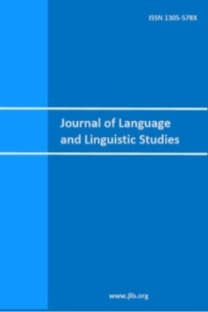The Ibibio Locative Copular Constructions
Öz
The Ibibio language, a member of the Lower Cross group of languages is predominantly spoken in Akwa Ibom State, Nigeria. Ibibio has two types of copular construction. One is locative while the other is predicative. Using a purely descriptive approach/method, this paper provides a descriptive account of the copular locative constructions in Ibibio. This study is based on a database collected from adult speakers of Ibibio by the author using an elicitation list. The database includes both actual and potential words/sentences, which standard Ibibio speakers found to be in consistent with their language rules.The paper has observed that Ibibio copular locatives make use of locative copular verbs which have semantic content, but are however, with indeterminate locative precision except when they co- occur with an appropriate locative complement. It has further observed that in Ibibio, the location of a subject entity can be marked with locative elements in two ways. In the first instance, a locative copular verb which can be dórò, ‘be on’ síneé ‘be in’ bà ‘be at’ obligatorily co-occurs with a deitic locative complement or a locative prepositional phrase (PP) complement headed by a multipurpose preposition (P), ké. The P is semantically, interpreted as either on, in, at or under depending on the particular locative copular verb that it co-occurs with. In the second instance, in addition to the locative copular verb and the locative PP complement headed by the P ké, there is also within the PP complement (headed by the P ké), a locative relational noun modifier which, modifies the head noun, a complement to the locative P ké. Based on Ameka and Levinson’s (2007) cross-linguistic classification of positional and locative verbs, the paper concludes that Ibibio belongs to the multi-verb type of languages with inherently locative copular verbs which are used to express the spatial locative orientation of subject entities.
- ISSN: 1305-578X
- Yayın Aralığı: Yılda 4 Sayı
- Yayıncı: Hacettepe Üniversitesi
